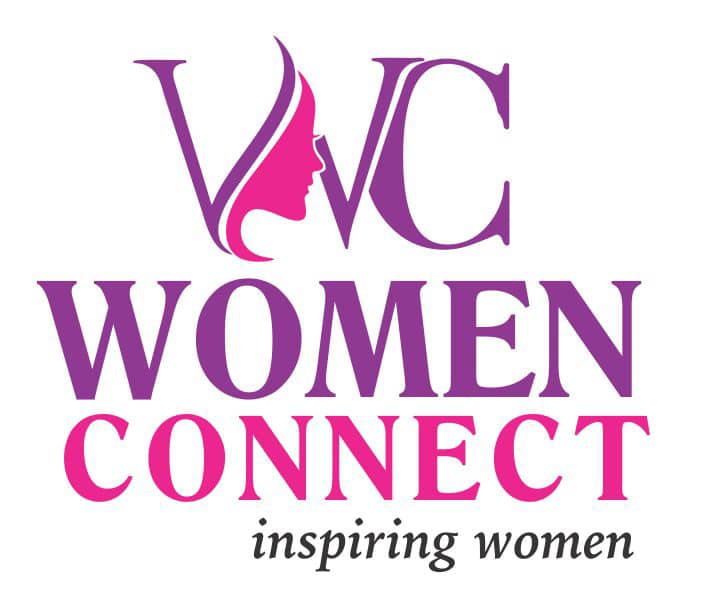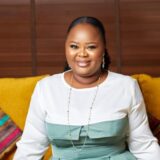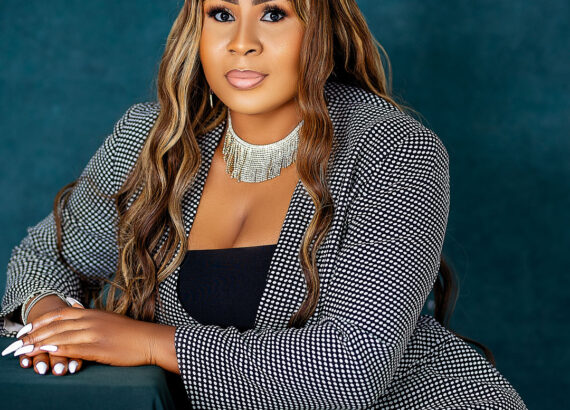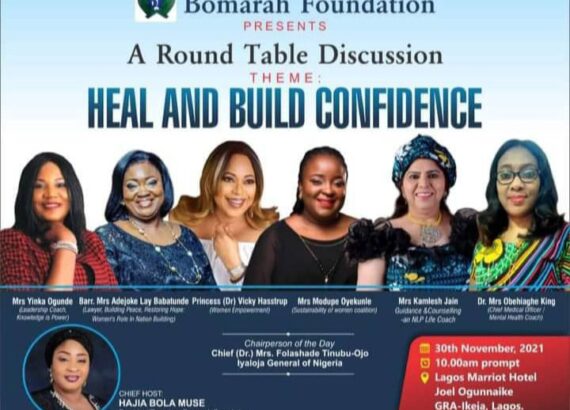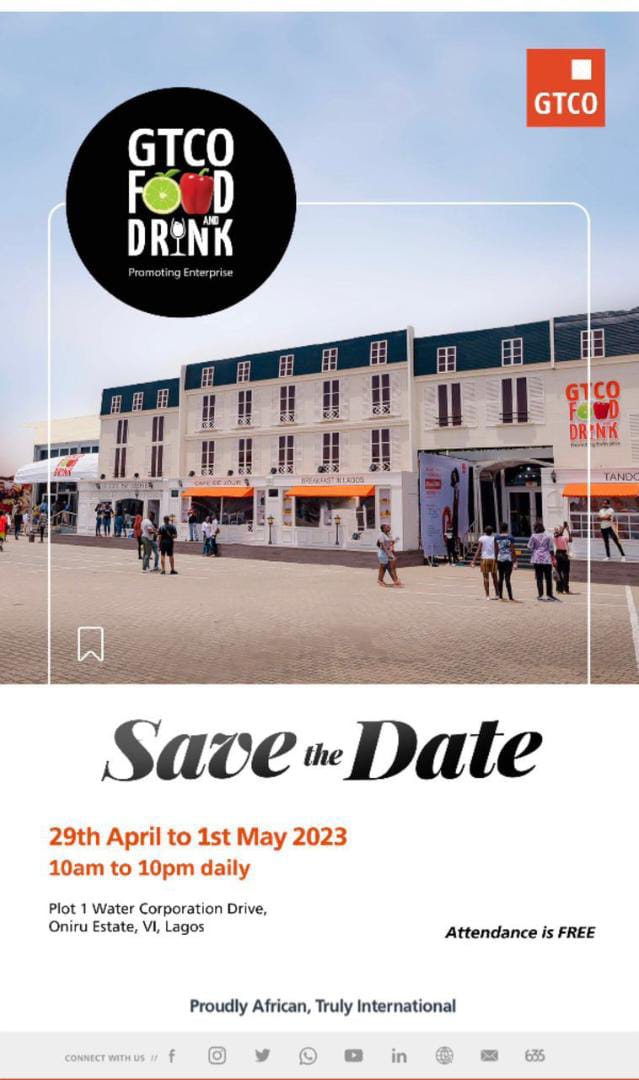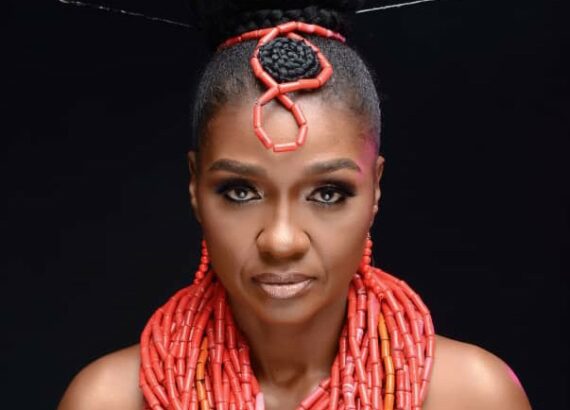Adetola Salau is a social innovative entrepreneur, global educator, author and transformation agent. She is currently the Senior Special Assistant on Education to the Governor in Lagos State. She is also an Engineer and the author of more than ten books, one of which is a roadmap for transforming mindsets of African children; “Re-engineering minds for innovation”
She founded Carisma4U Educational Foundation, which is a social innovation enterprise in 2015 with a focus on breaking the poverty cycle in Nigeria and Africa at large by equipping African children with highly competitive STEM (Science, Technology, Engineering and Mathematics) skills essential for the 4th industrial revolution. Her purpose is to transform learning in Africa especially STEM Education for the economic prosperity and future readiness for over 2 million children in Africa by the year 2030.
She is working on engaging children, teachers and parents to boost 21st century skills that prepare African children for the future of work. She was selected to be a part of the 2018 Spring Cohort of the MIT Innovation and Entrepreneurship Bootcamp at Brisbane, Australia. She has a B. Sc (Hons) in Chemistry from Fordham University, New York, with a medal as the best student in Chemistry.
She has a M.Sc in Chemical Engineering and in Engineering Management from Syracuse University in New York. She is a Doctoral Candidate in Curriculum, Instruction and the Science of Learning at the University at Buffalo, State University of New York.
She is part of a global focus group at the Smithsonian Science Education Center relating to STEM Education for Sustainable Development (STEM4SD.)
She is a Moving Worlds Institute Fellow. MWI builds social impact leaders and doers behind grassroots, world-changing ideas.
She worked for the City of New York Board of Education (insert years) and is a permanent licensed Math Educator for the State of New York. Her teaching career has also seen her work as Faculty in Higher institutions in North & South Carolina, California as a certified expert in STEM pedagogy.
She has taught students from the 6th grade to teaching at Fordham University, College of New Rochelle, as well as several Polytechnics in New York and North Carolina as an Adjunct Lecturer. She is passionate about education and advocates for education reform in Africa.
She is driven by the desire to help students in Africa become future ready.
She has since consulted widely with stakeholders and participated in symposiums and conferences all over the world.
In this Interview with Oyinlola Sale, Adetola Salau spoke on the impact she has made so far in encouraging STEM Education in Nigeria.
Now tell us about the Story behind creating Carisma4U Educational Foundation?
I have always told this story and it resonates really deeply with me. After the terrorist attacks in New York in 2001 I had an epiphany. There was so much hopelessness in the eyes of our children and the fear was palpable in the entire United States. With the encouragement of my mother and a deep seethed desire to contribute to the healing of the nation at the time, I joined the New York public school system. While there, I observed that yearly, there was an upgrade of educational materials, textbooks, teaching and learning aids, resource materials for teachers and others were replaced with new ones and the old ones were stored away where they began to go bad after some time and they would eventually get destroyed. I always felt horrible about this because I always cast my mind back home and how that some of the things that were being taken for granted were literal gold at home. So I mustered the courage and approached our principal at the time, begging him to hand over those materials to me rather than destroy them when they were no longer in use. I began to ship these educational materials back home to our local schools in the Niger Delta where I grew up with my parents as professors in University of Port Harcourt. This birthed by love and passion for the educational development of children. Don’t forget that I have both two master degrees in engineering, I had returned to Nigeria for my national youth service and worked in the oil and gas sector where I was retained. But you know what they say about passion and your calling in life… when it was time, I had to turn my back on the oil and gas industry and follow my passion in educational development. It was a tough decision but I considered that if we were to prepare the next generation of Nigerians to take over from us and push for advancement of the country, their education had to be given paramount priority and focus this is what led to my founding the Carisma4u educational foundation
As a Female Engineer, what are the hurdles and stereotypes you had to jump to become successful?
I think the most important and at the same time poignant battles are those of the mind! Once you have internal zen and equilibrium, then whatever external factors that seem to perturb or disorient others will certainly mean little or nothing to you. In the first place, I am an engineer and that is that! There is no course in the university called “female engineering” (laughter) you study engineering at the Bachelors or Masters/PhD level and by virtue of that educational qualification, you become an engineer; male female or whatever gender you choose to identify as. I need to make this clear because I realize that in driving narratives for gender balance or equality, we do not create another hydra headed monster that provides a ready crutch for people to easily justify or perpetuate perceived challenges. That said, in order not to appear oblivious of the reality of challenges faced by women in the work place, I will tweak it and discuss it not as the challenges or hurdles I had to jump because I’m female, because in my belief, putting it this way makes it appear like there is something inherently faulted in being female, rather I will look at some of the misconceptions my male counterparts exhibited in my work with them. I will also be careful not to present this idea in a way that vilifies the men because I strongly believe in the harnessing of the genders to bring about cohesion and great power. So for the most part, engineering is seen as a job requiring a lot of physical exertion of energy.
Women have long since been considered lacking in physical resilience when compared to their male counterparts and a lot of this is cultural and psychosocial; where a woman, or womanhood rather is expected to be demure and soft spoken. In a bid to be gentlemen, some of my colleagues would want to insist that I not do tasks they considered heavy lifting. But I was like hey guys, a huge part of my work is building capacity and understanding the ropes of my profession, this can only be achieved by doing! I would thank them for their graciousness and ask them politely to back off and allow me carry my own weight! (laughter).
Basically the preconception that engineering is too tough, rough or tedious a job for the female gender would be in my opinion the primary misconception I had to deal with in my days as an engineer. Thankfully I have always been blessed to work amongst teams that understood the value that I brought to the table first and foremost as a human being and then as a professional.
In what way is the Lagos State Government encouraging STEM Education?
As we all know, the World Economic Forum has indicated that STEM related courses portend the highest career paying jobs of the future and present us with the greatest opportunities to solve the challenges of human existence.
Lagos state in collaboration with several international development organizations has launched the STEAM UP LAGOS project to innovate education and technology beginning at the secondary school level (for now.) This project is primarily aimed at translating classroom learned content into immediate solutions in the environment that our students can proffer.
This is aimed at bridging the gap between classroom teaching, learning and translating that into solving daily problems in our communities. Our Governor, Mr Babajide Sanwo-Olu believes in catching them young so we are pushing the focus on STEAM learning pedagogy at that level so that it latches on and grows with our children through the ranks.
How has Covid -19 changed the system of Education in Nigeria?
Without much thought, we can see the emphasis on remote learning which is dependent on technology. The walls of the classroom have been expended to beyond a physical location. This I would say have been the greatest impact of covid 19 to education. In Lagos state, we gave over 30,000 smartphones to our students in 2020 and we are poised to give out more than that in 2021. Our goal is to give smartphones to our teachers and students. It is a objective of 1,000,000 smartphones distributed to students in our state to drive the infusion of technology in education. We also utilized technology in other ways to propel learning; we had radio and television programming throughout the lockdown to connect students to lessons to have them continuously engaged with learning. With this in mind, we have appli seeed for TV and radio licenses so that we can provide learning content which would be contextualized for our students here in Nigeria. We were the only state that didn’t shut down learning engagement for our students during the pandemic.
Tell us about the inspiration behind your book, ”roadmap for transforming mindsets of African children; “Re-engineering minds for innovation”?
I was inspired by the realization that as I stated earlier, majority of our battles take place in the mind. We ought to start by fixing the mindsets of our children to ensure that they are global champions. I listed out examples of how our forefathers were innovative and pursued excellence. I reminded them that their lineage is great and they have the ability to be STEM warriors!
How can we encourage more girls to take up more interest in STEM Education?
This is a very trick one, because I’m one of those who believe interest cannot be “given” in that sense to someone because every undertaking that will ensure sustainability has to come from the individual themselves. That said, by the step that we have taken in Lagos state to emphasize the aesthetic component of science technology engineering and mathematics by following the global steam pedagogy and introducing art to it will ensure that a lot of our girls begin to see that there is beauty in technology, not just the same boring numbers and digits that stem has long since been associated with. By bringing home the interrelatedness between STEM, other subject areas or topics and deliberately engaging young girls in boot camps and incubation programs that inspire their inherent but maybe sometimes dormant interest in stem, we will gradually see the increased participation of girls in STEM
As an Advocate of Reforming Education in Africa, where do you think Nigeria’s educational sector can bridge the gap?
So like I mentioned before now, integration remains the most potent factor toward educational advancement which has real time, immediate translation in the entire spheres of national life and progress. Just like the entire word is moving toward collaboration and partnerships I believe that we as teachers and educators should do well to begin to emphasize the uniformity and inclusion in classroom taught and learned subject matter. This will serve to bridge the gap between students who do not classify themselves as core science and technology because a lot of people do not know this, and I like to share this at any given opportunity, not many know that a famous Hollywood Actress of the 1930s to 1950s (Hedy Lamarr), developed the frequency hopping code that would change radio frequencies simultaneously. Used successfully during World War 2 to combat enemy interception of the United States Navy frequencies, this revolution in STEM was furthermore a precursor ingredient to development of today’s GPS systems, Bluetooth, Wi-Fi networks connections and CDMA used in wireless cell phones.
I always like to use the prime example, which perhaps is what we are set to achieve through the STEAM UP LAGOS Project.
If you were given the opportunity to draw a road map to excellence education in Nigeria, what would be the critical focal point you will focus on?
Teachers!
Boosting their capacity, rewarding excellence, stressing the professionalism in their occupation. These would be my key points and areas around which I would highlight action plans. I was raised by educators, groomed by countless educators and became an educator myself. I can’t stress the importance of teachers enough! Teachers remain the fulcrum of EVERY single profession on earth, everyone was touched (positively or negatively) by teachers.
Once we work on our teachers, a lot of the other issues that we need to work on would fall into place.
